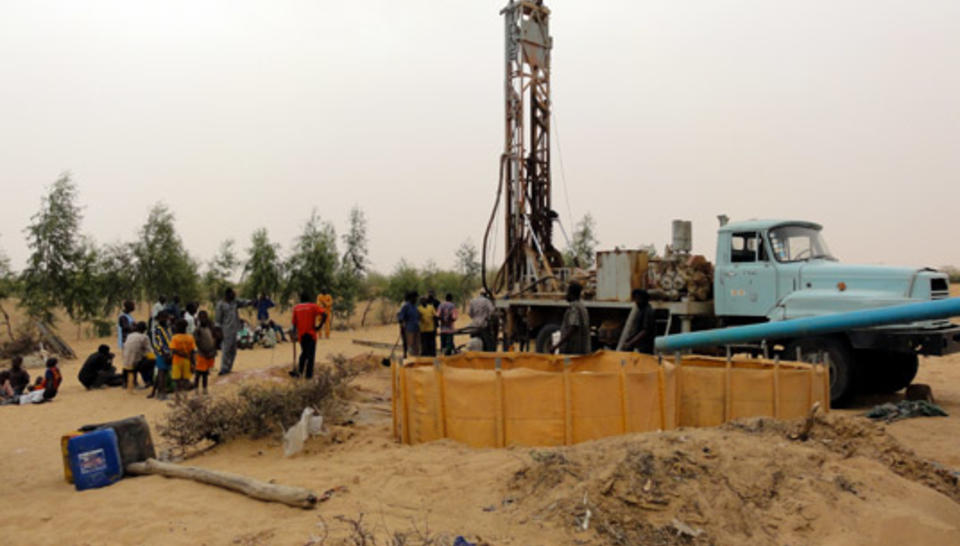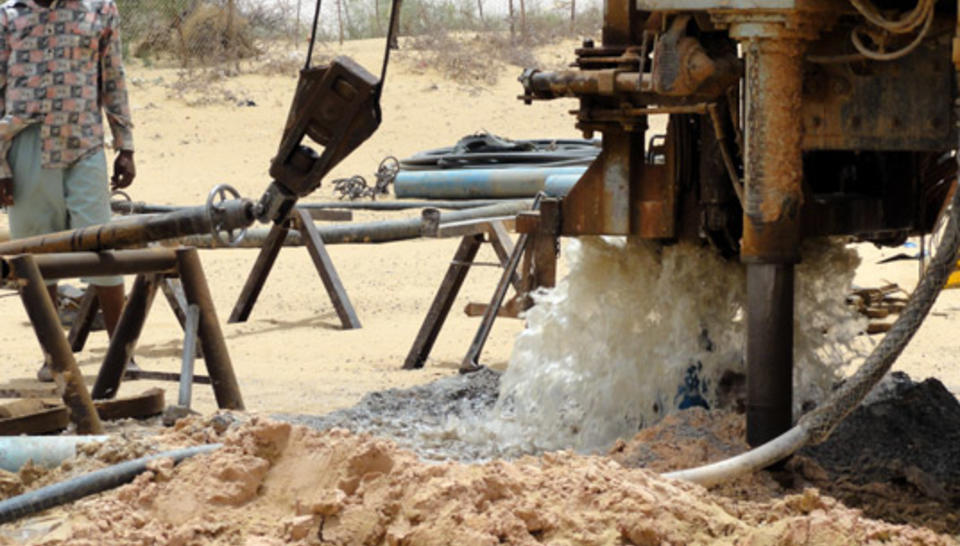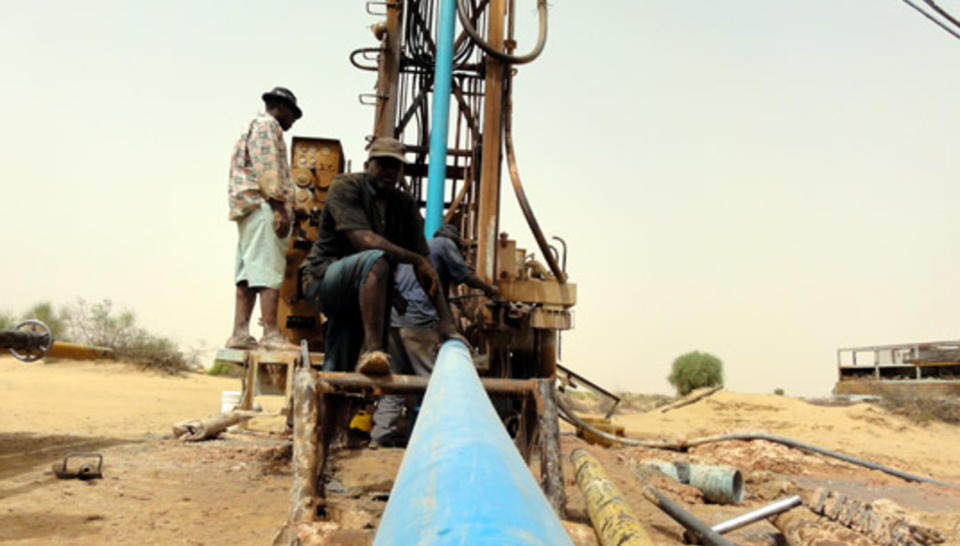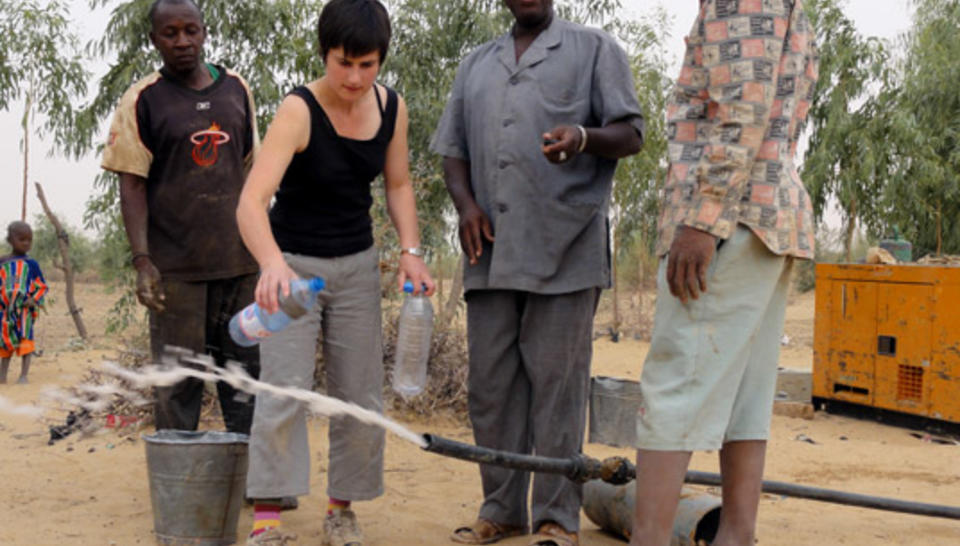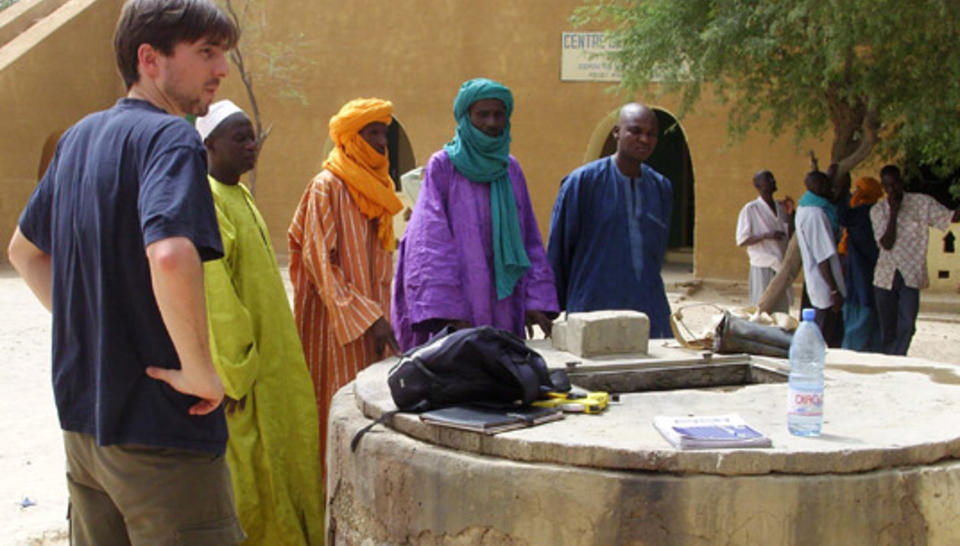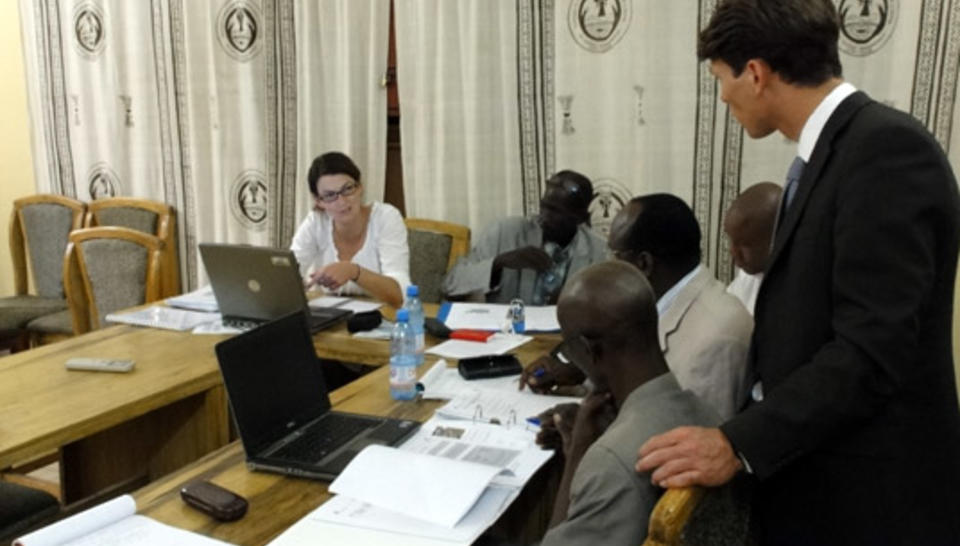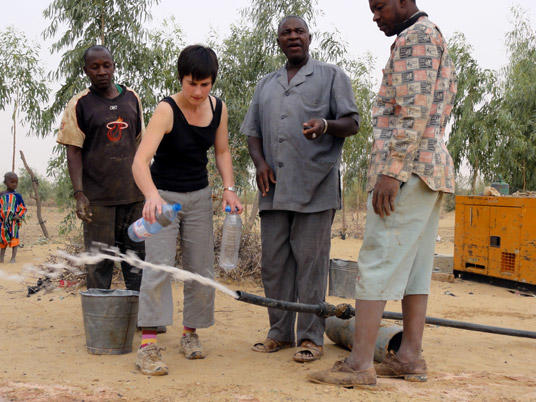
Humanitarian and Development
Place
Cercle de Niafunké, Mali
Sponsor
Franck Haaser
Grant(s)
€70,000, selection Committee: May 27, 2008; €145,000 to the Board of Administration at 2010/03/15
Project leader
"I am personally following up the progress of this very important project, from design to completion. I did the job of evaluating the needs and identified the right solutions to supply them, with the local partners. Veolia, by providing skills, will follow up its implementation all the way."
Franck Haaser
The Circle (district) of Niafunke, extremely isolated when the Niger river is in spate (from July to September), suffers from a deficit in water structures alongside a simultaneous increase in drinking water requirements due to steep demographic growth.
To remedy this problem, the Regional Assembly of Timbuktu has set up several public and private partnerships, particularly with the Rhône-Alpes region and Veolia Environnement.
Developing local expertise
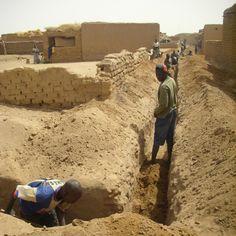
Following the decentralization conducted by the State of Mali in the 1990s, the skills have been progressively transmitted to the local level. It is in this context that the Projet d'Appui au Développement Local de Tombouctou (PADL), run by the nonprofit ARP Développement since 1992, was set up in the Niafunke district. The aim is to support the Malian communes in drawing up and implementing their development strategy, by providing them with administrative support and by enlisting technical and financial partners.
In order to provide an answer to the lack of access to drinking water in the area, the former mayor of Niafunke, Ali Farka Touré, decided to mobilize partners for discussion sessions on the topic of sustainable development. Following these meetings, ARP Développement and the Veolia Foundation decided to act together to create a program designed to equip nine villages of the Niafunke district with drinking water supply by solar pumping, for 15,000 direct beneficiaries (Niafunke 1).
In order to prolong the project, it is being followed as of 2010 by a "social carbon" program, which exploits carbon trading mechanisms to facilitate access to emergency structures (Niafunke 2).
In addition to its financial backing, the Veolia Foundation is supplying the skills of Veoliaforce volunteers: in the first half of 2010, the volunteers spent 80 days in the field.
Niafunke 1
In the first phase (2006-2007) of the project, two villages assumed the role of pilots, before another seven were selected across the Niafunke district. Ultimately, each of the nine villages was equipped with a well and infrastructures adapted to the needs expressed by the communities (lines, public standpipes, water towers) for a better use of the water in the region. 15,000 persons, including several schools, benefit from these installations today. At the same time, latrines designed for biogas recovery have been built in four villages.
Reinforcing local capacities for permanent water management
The installation of these infrastructures demanded the creation of management committees in order to administer the payment for the water. This is calculated in accordance with the operating costs and depreciation. The partnership helped to organize a skills enhancement course to provide each village with the tools necessary for proper management of the facilities, through the action of these committees.
The management committees enjoy the support and supervision of the supervisory committee set up in connection with the program. An artisan repairman, trained in maintenance and upkeep of the facilities, is bound by contract to each of the management committees. These actions have helped train more than 190 persons, 60% of them women, in the sustainable management of the water facilities!
The Foundation has provided its technical support throughout the project by assigning four volunteers to the field for two years. While the counseling provided on the spot has proved to be crucial, it has also helped identify new needs, to integrate the use of the infrastructures, the promotion of hygiene, and the development of income generating activities, to ensure the permanence of the installations and the sustainable improvement of the living conditions of the inhabitants. The choice of solar pumping for the Niafunke district therefore allowed the consideration of an ambitious extension to meet these requirements: a training project in carbon certification has been added to the installation of the water supply facilities.
Niafunke 2
Like most of its neighbors, Mali is disadvantaged in this area, since sub-Saharan Africa accounts for less than 1% of global carbon credits, according to the calculation method set by the Kyoto Protocol, and has to contend with a two-fold problem. Not only are the investments low in this field, but promoters of this type of project are also lacking.
Enlarging the access to potable water thanks to carbon credits
The Veolia Foundation has acted on this point: in cooperation with the Environment Ministry of the Republic of Mali, it proposes a skills reinforcement program which involves training in certification procedures for project promoters in Mali and for the administrative authorities charged with supervising them.
The Niafunke project is therefore acting as a laboratory. The credits generated are not used to finance the investment -a matter that is handled by the backers, particularly the Veolia Foundation-, but to give financial support to the operation and amortization of the water supply system. In other words, the aim is to cut the price of water and thereby help give across-the-board access to drinking water in this poverty-stricken area. To complete equipment installation and prepare the training program, several volunteers relayed each other in the field in 2009 and 2010.


